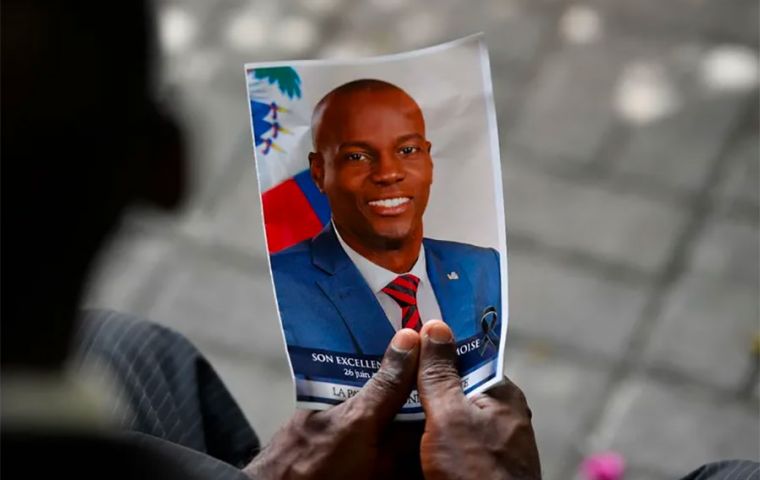MercoPress. South Atlantic News Agency
Suspect in killing of Haitian president freed by Istanbul Court
 Halal had spent eight months in a Turkish prison
Halal had spent eight months in a Turkish prison A Court in Türkiye Monday turned down a request for the extradition of Samir Nasri Salem Handal to Haiti in connection with the assassination of President Jovenel Moïse in July last year.
There is an Interpol red arrest warrant out on Handal, a Jordanian businessman who allegedly rented his house to Christian Emmanuel Sanon, who allegedly organized the killing. Handal was arrested at Istanbul Airport while traveling from the United States to Jordan in November 2021 and has spent eight months in prison.
Handal's legal team has argued that their client was not aware of the tenants' intentions and that he merely rented the house without further knowledge of the matter.
Since Moïse's assassination last July 7, Haiti's political and economic situation has worsened, with murders and kidnappings on a daily basis, especially in large parts of Port-au-Prince.
The 37th High Criminal Court in Istanbul Monday rejected the extradition of Handal and ordered his release without further ado.
Moïse had been ruling by decree following the delay of elections scheduled for 2018 and was leading the government amid fierce disputes over when his term would end.
Aged 53, Moïse had been born into a low-income family in Trou-du-Nord, in the northwest of the country, the son of a merchant and a seamstress. As a teenager, he moved to Port-au-Prince and studied political science. He later embarked on a career as an entrepreneur.
In 2015, President Michel Martelly nominated him as the presidential candidate for the political party Martelly founded, the Haitian Tèt Kale Party (PHTK). The elections were turbulent, with accusations of fraud, forcing a new process in 2016. There, Moïse won in the first round with 55% of the vote, 36 points more than his rival.
He took office in February 2017. Since 2019, he faced social protests due to the deterioration of living conditions in the country and accusations of corruption.
In February 2021, Haiti's Superior Judicial Council accounted for the end of Moïse's mandate (taking 2016 as the starting point), but he maintained that he would remain in power until February 7, 2022 (having taken office in 2017), in an interpretation of the Constitution rejected by the opposition. In that turbulent week, the president claimed that he had foiled a coup attempt.
Amid growing violence and a wave of kidnappings, the president, accused of inaction in the face of insecurity and impunity of gangs, continued to govern the poorest nation in the Western Hemisphere through presidential decrees, with no checks and balances from the Legislative and to hold a constitutional referendum (not provided for in the Magna Carta), initially scheduled for June 27 and then postponed amid the crisis. The opposition and many civil society organizations rejected outright the presidential proposal and denounced Moïse's illegitimacy.
Opposition leaders accused him of trying to increase his power by limiting the competence of a court auditing government contracts, or with another decree creating an intelligence agency accountable only to the president.




Top Comments
Disclaimer & comment rulesCommenting for this story is now closed.
If you have a Facebook account, become a fan and comment on our Facebook Page!